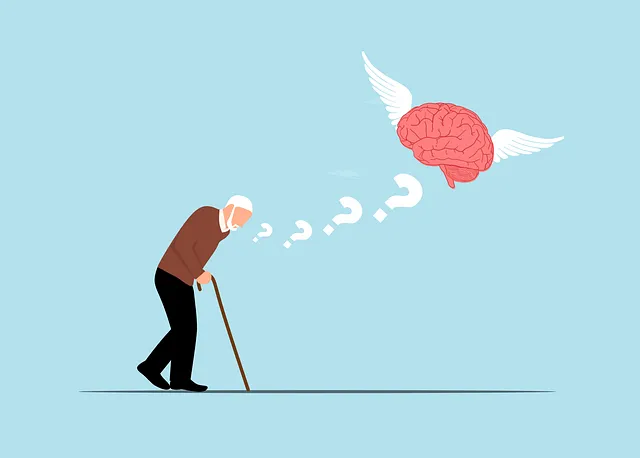Burnout is a significant issue among healthcare providers, including therapists at Kaiser in Lone Tree, caused by high-stress environments, long hours, and heavy caseloads. To address this, Kaiser has launched programs focused on cultural competency and mental wellness coaching. These initiatives aim to enhance self-care, resilience, stress management, and work-life balance, benefiting both therapist well-being and patient care quality. By prioritizing mental health through strategies like Mindfulness Meditation and Resilience Building, therapists at Kaiser Lone Tree can combat burnout, improve patient outcomes, and maintain a positive work environment, ensuring high-quality care and addressing the question: does Kaiser have good therapists Lone Tree?
Healthcare provider burnout is a pressing issue, impacting patient care and healthcare systems. This article explores strategies to prevent burnout among healthcare professionals, focusing on Kaiser Lone Tree’s approach. We delve into the understanding of burnout, its causes, and effects, including statistics within the organization. Effective prevention tactics are presented, emphasizing self-care, organizational support, and work-life balance. Additionally, we highlight the critical role of therapists at Kaiser Lone Tree in addressing burnout through accessible therapy services, diverse treatment options, and real-life success stories, offering best practices for integration into busy schedules.
- Understanding Burnout in Healthcare Providers
- – Definition and causes of burnout
- – Impact on patients and healthcare systems
Understanding Burnout in Healthcare Providers

Burnout among healthcare providers is a growing concern, impacting not only individual well-being but also patient care and overall organizational performance. It manifests as a state of emotional exhaustion, depersonalization, and reduced personal accomplishment, often stemming from prolonged exposure to high-stress work environments. Healthcare professionals, especially those like therapists, face unique challenges due to the demanding nature of their work, including long hours, heavy caseloads, and complex patient needs. At Kaiser, located in Lone Tree, for instance, there is a growing recognition of these issues, leading to various initiatives aimed at burnout prevention.
Understanding and addressing burnout requires a multifaceted approach. One key strategy involves implementing Healthcare Provider Cultural Competency Training programs that promote self-care and resilience. Additionally, the development of Mental Wellness Coaching Programs can provide therapists and other healthcare workers with tools to manage stress, set boundaries, and maintain work-life balance. These initiatives not only support individual mental wellness but also contribute to a more sustainable healthcare workforce, ensuring quality care for patients in the long term.
– Definition and causes of burnout

Burnout is a state of emotional, physical, and mental exhaustion that can affect healthcare providers when they experience prolonged or excessive stress on the job. It often arises from a range of factors, including heavy workload, long hours, lack of control over work processes, poor leadership, and insufficient support systems. In the case of Kaiser in Lone Tree, where dedicated therapists are available, recognizing burnout signs early is crucial. The pressure to deliver quality care while managing demanding schedules can take a toll on even the most resilient professionals.
To combat burnout, healthcare providers can turn to strategies such as Mindfulness Meditation, Resilience Building, and Inner Strength Development. These practices promote self-care, stress management, and emotional balance, helping professionals maintain their well-being in challenging environments. By prioritizing their mental health, therapists at Kaiser Lone Tree can better support their patients and sustain a positive work environment.
– Impact on patients and healthcare systems

Burnout among healthcare providers is a growing concern, with significant implications for both patients and healthcare systems. When medical professionals experience chronic stress and emotional exhaustion, it can lead to decreased patient satisfaction and quality of care. Overworked therapists, for instance, at facilities like Kaiser in Lone Tree, may struggle to provide the attentive, personalized treatment that patients need. This can result in longer wait times, reduced therapy efficacy, and even patient dropout.
Moreover, burnout contributes to a higher risk of errors and medical malpractice, as fatigued professionals are more likely to make poor judgments. It also exacerbates existing mental health challenges among providers, with depression prevention becoming an increasingly vital aspect of healthcare. Implementing strategies such as regular risk assessments for mental health professionals and fostering positive thinking can help mitigate these issues, ensuring that patients receive consistent, high-quality care from a resilient and engaged healthcare workforce.
Burnout among healthcare providers is a pressing issue, impacting not just individual well-being but also patient care and healthcare system efficiency. Understanding the causes, such as heavy workloads and emotional demands, is crucial for implementing effective strategies like those offered by organizations like Kaiser, with known good therapists in Lone Tree. By prioritizing employee mental health and well-being, healthcare systems can prevent burnout, enhance job satisfaction, and ultimately improve patient outcomes.






